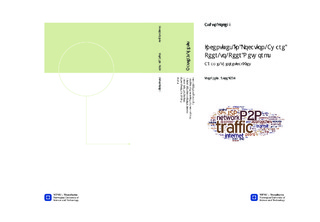Incentives in Location-Aware Peer-to-Peer Networks: A Game-Theoretical View
Master thesis
Permanent lenke
http://hdl.handle.net/11250/262708Utgivelsesdato
2012Metadata
Vis full innførselSamlinger
Sammendrag
Recently the world wide popularity and utilization of Peer-to-peer (P2P) appli- cations, such as BitTorrent, have experienced a tremendous growth. In addition, studies show that its related traffic accounts for a significant portion of the overall Internet traffic volume. Moreover, the inherently distributed design of P2P net- works in combination with arbitrary peer selection have been shown to introduce traffic control problems for Internet Service Providers (ISPs) as well as causing sig- nificant increases in costly inter-ISP traffic. In order to solve the P2P challenges, a variety of location-aware P2P mechanisms have been published and implemented with varying degrees of success. Although the technical aspects of these mechanisms have been studied quite thoroughly, their adaption and success can arguably only be determined by the entities in power, namely ISPs and its P2P traffic generating customers.In this thesis a game-theoretic approach is pursued in order to capture the economical interactions of both ISPs and its users when presented with a decision of adapting location-aware P2P mechanisms. Specifically, a game-theoretic model is developed, encompassing the variety of ISP and consumer aspects from traffic do- main related costs and P2P performance to Internet access pricing. The model perspective is limited to the decision making between one ISP and its users and it is studied in two steps. First an analytical equilibrium analysis is performed in order to develop general expressions regarding incentivizing actions between the ISP and its users. Finally a numerical analysis is performed, using relevant data found in literature and estimates, in order to identify which strategies that could provide incentives for both ISPs and its users to adapt location-aware P2P mechanisms.
